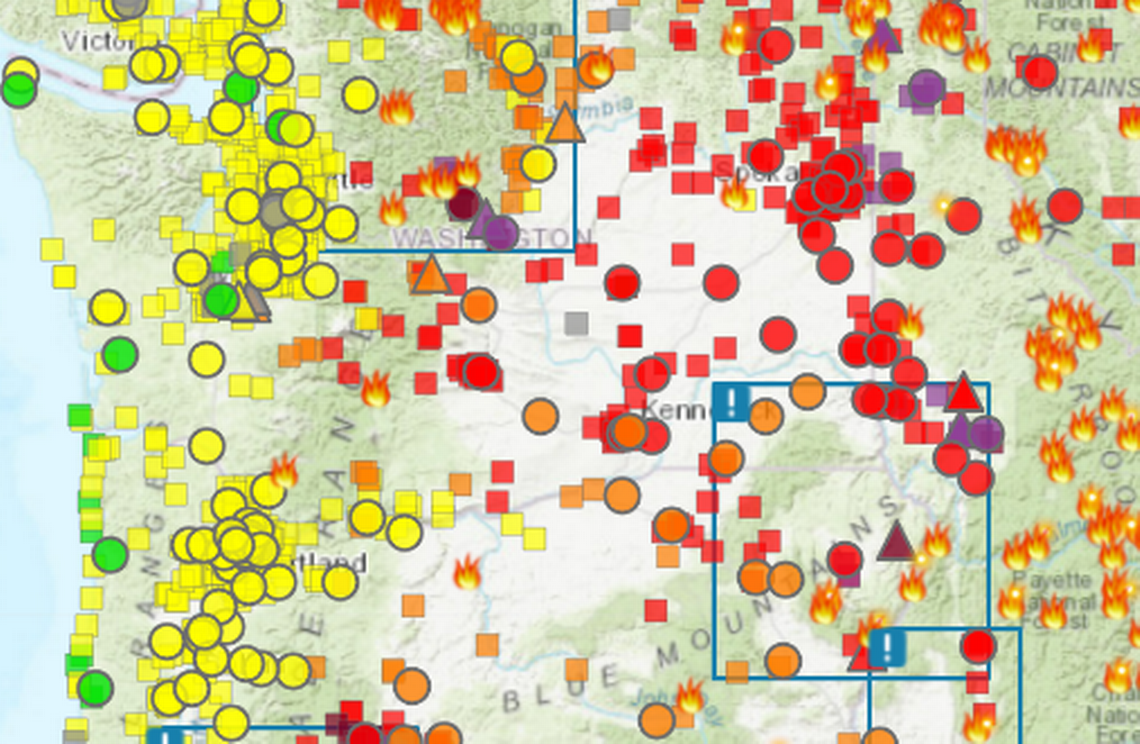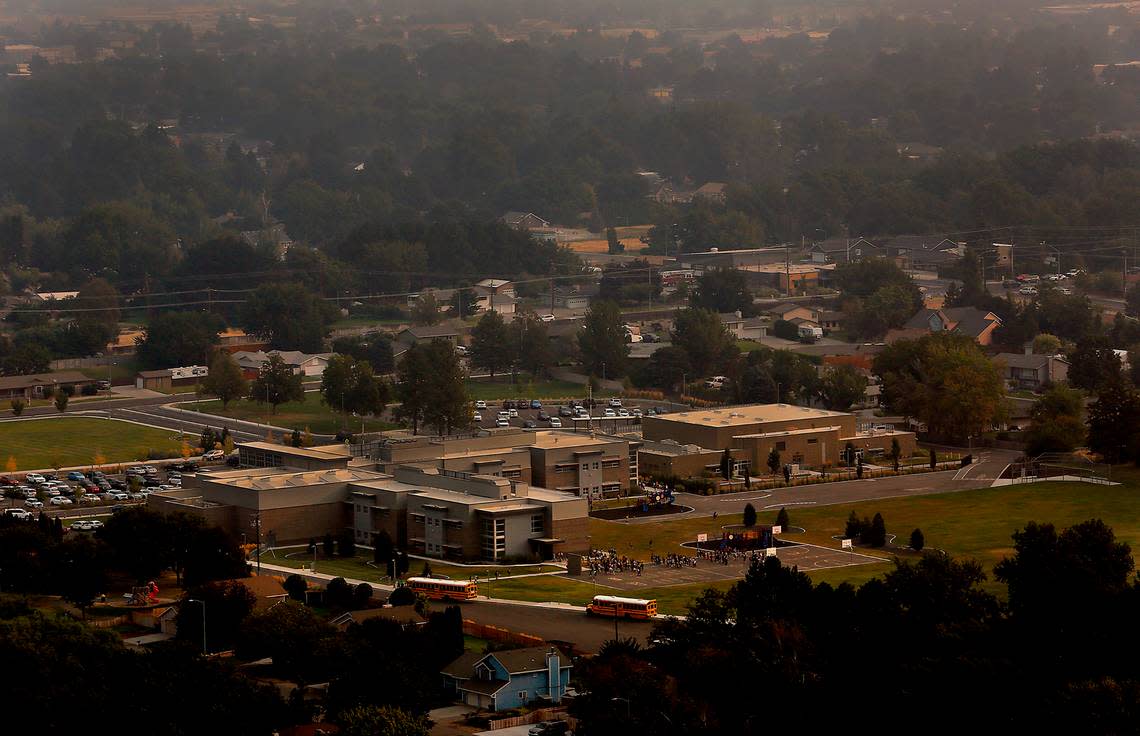Air quality hits unhealthy levels. Tri-Citians told to prepare for more smoky days ahead
Smoky air blanketed the Tri-Cities on Monday, dropping the air quality to levels considered unhealthy for everyone for much of the community.
The Benton Clean Air Agency extended the air quality alert through Wednesday, and the National Weather Service also issued an air quality alert on Monday lasting through 1 p.m. Wednesday.
And AirNow, a coalition of government agencies, predicted that air quality would continue to be unhealthy in the greater Tri-Cities area through Wednesday and unhealthy for sensitive groups Thursday and Friday.
The Benton Franklin Health District said schools in Benton and Franklin counties should consider canceling all outdoor activities and sports if air quality remains in the unhealthy range.
Air also was rated as unhealthy in the Tri-Cities for part of Sunday.

Elementary school students were kept indoors at recess Monday morning around the Tri-Cities, based on guidance from the Washington state Department of Health.
Officials at all public schools in the Tri-Cities were keeping a close eye on any changes in air quality before deciding whether to hold outdoor activities, including athletics, after school Monday.
Sources of smoky air
Fresh smoke in the Tri-Cities on Monday was coming largely from the Cedar Creek Fire, according to the National Weather Service.
It is adding to lingering smoke that has pooled in the Tri-Cities in recent days from fires in Idaho and the north Cascade Mountains of Oregon, according to the weather service. Smoke tends to build up in the Tri-Cities because of its low elevation.
The Cedar Creek Fire has burned since a lightning strike Aug. 1 in old growth timber stands in the Cascade Mountains southeast of Eugene, Ore. It has burned 134 square miles and as of Sunday was back to 0% contained.
When the smoke clears from the Tri-Cities will likely depend on the weather.
Cooler temperatures and higher humidity this week could help firefighters knock down fires in the region, said Tyler Thompson, air quality engineer at the Benton Clean Air Agency.

In addition, there is a chance that winds could shift to blowing more from the west to the east, clearing out some of the smoke in the Tri-Cities area.
However, that may not happen and people should be prepared for possible unhealthy air for days to come, Thompson said.
Coping with smoke
Breathing in smoke may cause minor symptoms, such as eye, nose and throat irritation; dry cough or sore throat; and headaches, according to the Washington State Department of Health.
But some people may also have more serious symptoms, including shortness of breath, chest tightness, asthma attacks and worsening of chronic conditions.
Smoke was thick enough in most of the Tri-Cities on Monday to be unhealthy for everyone, but those at increased risk included the old and the young — infants, children, pregnant people and those over 65.

In addition health conditions such as heart disease, lung disease, asthma, respiratory infections, diabetes or a previous stroke increase risk from breathing smoke.
The smoky air also makes people more susceptible to respiratory infections, including COVID-19, according to the Washington state Department of Health.
When air quality is rated as unhealthy, everyone should reduce exposure, including limiting time outside and avoiding strenuous outdoor activities, according to the Washington state Department of Ecology.
The Benton Franklin Health District recommends discussing with a doctor what precautions to take if a family member has heart or lung disease, including asthma.
Indoor air quality can be kept cleaner by setting air conditioners in homes and vehicles to recirculate..
Respiratory masks labeled N96 or N100, if worn correctly, can help filter out smoke.
The local health district recommends the masks for people who must be outside for extended periods of time, but not for children or men with beards.
